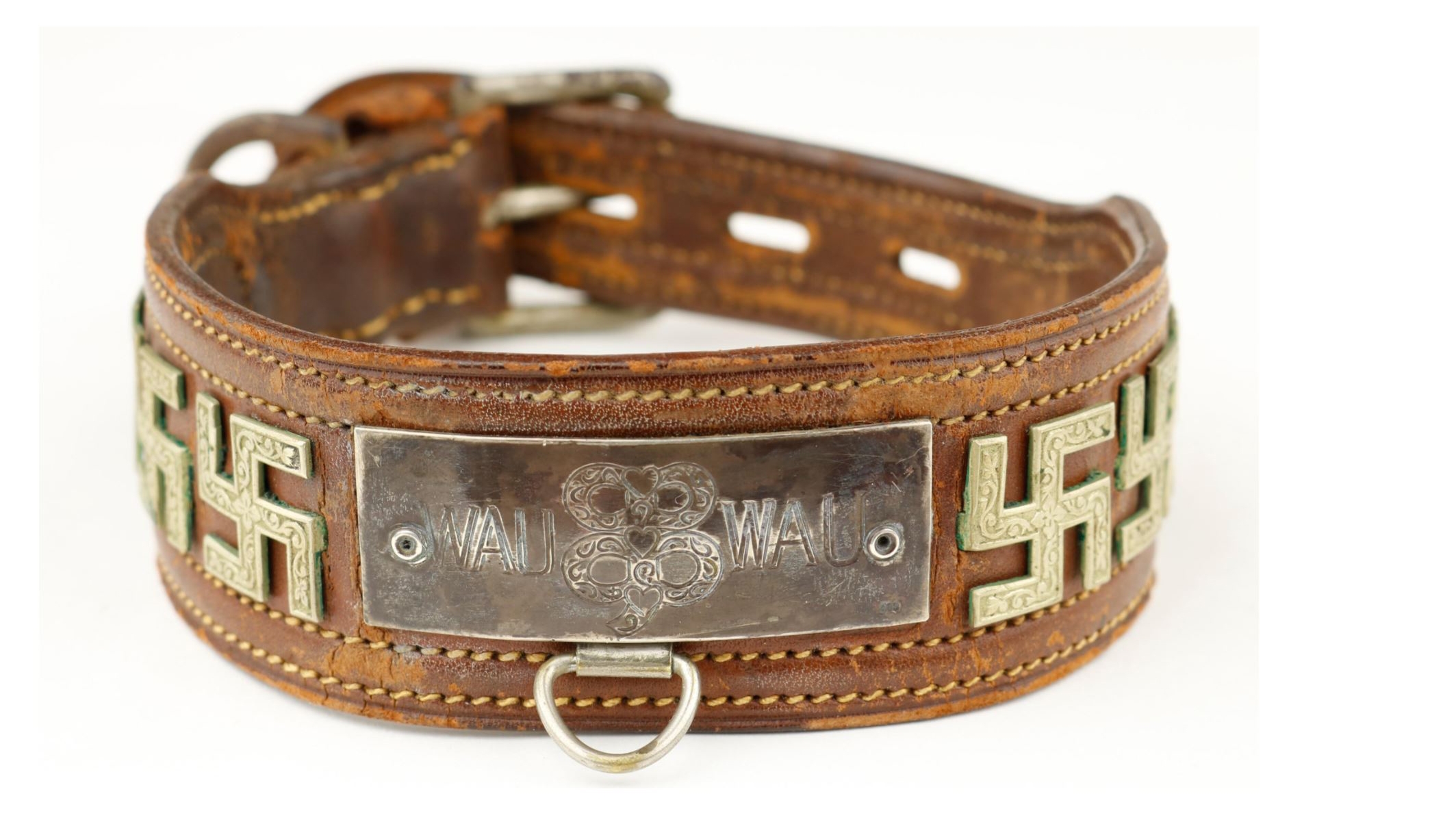Maryland auction house defends sale of Hitler items and Eva Braun’s swastika-studded dog collar
“It is tangible, real in-your-face proof that Hitler and Nazis lived,” the head of Alexander Historical Auctions said in response to criticism

A dog collar said to have belonged to the Scottish terrier of Eva Braun, Adolf Hitler’s wife, on display on the website of Alexander Historical Auctions, July 28, 2022. ( Alexander Historical Auctions)
(JTA) — An auction house in Maryland defended the sale of what it says were personal objects of Adolf Hitler, amid criticism from a European Jewish group.
One of the priciest items in the catalog for Friday’s auction by Alexander Historical Auctions house in Chesapeake City, Maryland, is a candy dish estimated to be worth at least $3,000 that the auction house says belonged to Hitler and was stolen from his Berghof compound near Munich. It is emblazoned with a golden symbol of the Reichsadler – the Nazi party’s imperial eagle – and the initials AH.
Another similarly priced item is a dog collar said to have belonged to Eva Braun, Hitler’s wife, for her pet Scottish terrier. A leather artifact with a small metal plate that reads “wau wau” – the sound of a dog barking as it is described in German – it is also studded with multiple metal swastikas.
The European Jewish Association, a Brussels-based lobby group, condemned the sale in a letter. The items only give “succor to those who idealize what the Nazi party stood for” or offer “buyers the chance to titillate a guest or loved one with an item belonging to a genocidal murderer and his supporters,” wrote the group’s chairman, Rabbi Menachem Margolin.
Bill Panagopulos, the president of Alexander Historical Auctions, which has faced similar rebuke for previous sales — including one that featured the personal diaries of Josef Mengele, a notorious Nazi war criminal — dismissed the criticism as “nonsense and sensationalism” in an email to the Jewish Telegraphic Agency.
“What we sell is criminal evidence, no matter how insignificant. It is tangible, real in-your-face proof that Hitler and Nazis lived, and also persecuted and killed tens of millions of people. To destroy or in any way impede the display or protection of this material is a crime against history,” Panagopulos wrote. The buyers, he added, “are NOT neo-Nazis, who are too poor and too stupid to appreciate any kind of historic material.”
Cheaper items on sale that are said to have belonged to Hitler and Braun include cutlery, champagne glasses, a beer glass tray and stationery. Some of the items had multiple bids on them on Thursday, including the collar going for up to $2,750 and the candy bowl going for up to $1,600.
“The sale of these items is an abhorrence. There is little to no intrinsic historical value to the vast bulk of the lots on display,” Margolin wrote to the auction house in a letter that was co-signed by 34 members and leaders of European Jewish communities.
The European Jewish Association does not know whether the items on sale are authentic, a spokesperson for the group told the Jewish Telegraphic Agency.
In 2017, Alexander Historical Auctions sold to an identified buyer an item it had described as Hitler’s telephone. Bidding started at $100,000, and the item ended up fetching $243,000.
This article originally appeared on JTA.org.













